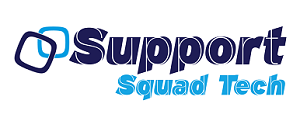
A Learning Management System (LMS) is a software application that enables businesses to manage, deliver, and track employee training programs. An LMS can play a critical role in a business’s success. It enables businesses to standardize employee training programs, ensuring that all employees receive consistent and up-to-date information. The platform also makes it easier for businesses to track employee progress and assess their understanding of the material.
By automating the delivery of training materials and assessments, an LMS reduces the time and resources required to manage employee training programs. This increased efficiency enables businesses to focus on other critical areas.
An LMS often includes features that support collaboration and communication, tracking and reporting, and accessibility.
There are several types of LMSs, including:
- Open-Source: These are freely available and can be customized according to the specific requirements of an organization. Examples of open-source LMSs include Moodle and Totara.
- Commercial: These are owned by companies and are available for a fee. Examples of commercial LMSs include Blackboard, Canvas, and Saba.
- Cloud-Based: These run on remote servers and are accessible through the internet. These are convenient because they can be accessed from anywhere and do not require any installations.
- Micro-learning: These focus on delivering small, bite-sized pieces of learning content. The idea behind micro-learning is that it is easier for learners to absorb and retain information when it is presented in small chunks.
- Corporate: These are specifically designed for use by businesses and organizations to train their employees. Corporate LMSs typically include features like certification tracking and employee performance tracking.
Image Credit: https://www.istockphoto.com/photo/single-young-woman-blogger-using-digital-tablet-in-cafe-gm886507962-246152530
The type of LMS that is best suited for a particular organization or individual depends on various factors, including the size of the organization, the type of content that will be delivered, and the budget. Before you look for an lms developers, recognize your learning requirements and evaluate several LMS vendors.
Here are some must-have features to look for in an LMS solution.
Must-have features of LMS solution
- User management: The ability to create, manage and assign user accounts and roles.
- Course creation: A tool for creating and uploading courses, lessons, and multimedia content.
- Assessment and testing: Features for creating and delivering tests and quizzes, tracking test scores and progress, and providing feedback.
- Track learning: The ability to track student/employee progress and performance, including completion rates, scores, and time spent in training.
- Gamification: The option to add gamification elements such as points, badges, and leaderboards to motivate learners.
- Mobile compatibility: The ability to access the LMS from mobile devices, including smartphones and tablets.
- Communication and collaboration: Features for facilitating communication and collaboration between instructors and students, such as discussion forums and private messaging.
- Reporting and analytics: The ability to generate reports on student progress, performance, and overall course statistics.
- Integration with other tools: The ability to integrate with other tools and systems, such as HR systems, payment gateways, and e-commerce platforms.
- Accessibility: The ability to accommodate users with disabilities and ensure that the LMS is accessible to all users.
- User experience: A user-friendly interface and navigation, making it easy for users to find what they need and complete tasks efficiently.
- Data security: Measures to ensure the security and confidentiality of user data, including secure data storage, backup, and recovery mechanisms.
- Customer support: Access to customer support resources, such as a knowledge base, community forum, and email support.
- Scalability: The ability to accommodate growing numbers of users and courses, as well as the ability to integrate new features and functionality as needed.
The aim is to choose a potent LMS solution for training management, delivery, and tracking!


